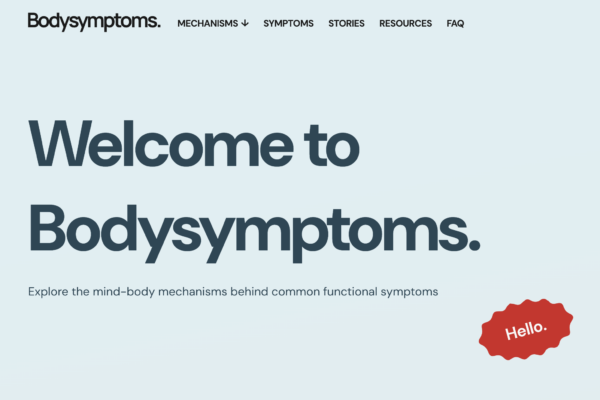Author: Brodie McGhie-Fraser. Diagnoses are an important part of healthcare, used to categorise people as having or not having a particular health condition. While a diagnosis has potential to provide explanation for symptoms, open treatment pathways or access statutory rights, it can also become a stigmatising label. A diagnosis may affect the identity for a […]
Stigma during medical consultations for patients with persistent somatic symptoms/functional disorders – how can we better understand it?
Author: Caoimhe Mcloughlin. Stigma in persistent somatic symptoms and functional disorders (PSS/FD) has been around for centuries. In earlier times, individuals with these symptoms were accused of moral failure or spiritual possession – much like other conditions that seemed hard to understand, such as epilepsy or tuberculosis. In more recent times, individuals with functional symptoms […]
‘Symptoms’ as a generic phenomenon in primary care
Author: Asma Chaabouni. Symptoms such as pain, fatigue and constipation are part of everyday sensation. For several reasons such as symptoms severity and symptoms persistence, 3.1% of people experiencing symptoms request primary care assistance within 6 weeks of the onset of the symptoms [1]. When these symptoms could not be attributed to well-established diseases, a […]
The journey of designing an interactive online tool to help understand Functional Somatic Symptoms through patient and public involvement
Author: Lina Münker. People with FSS frequently struggle to find reasonable explanations for their symptoms. This is potentially due to the complexity of FSS development, suggested to involve a variety of underlying multifaceted interactions from biological, psychological and social domains of functioning, and as well as the various presentations both within and across people. In […]
What are the major factors influencing persistent somatic symptoms, and what does this mean for future care provision?
Author: Nick Mamo. Persistent somatic symptoms (PSS) are surprisingly common – as much as 33% of individuals in primary care, and 53% in specialty clinics experience PSS. The care trajectory for these individuals with PSS can be complex, and outcomes can be quite poor. It is becoming increasingly evident that a big part of the […]
Understanding ‘brain fog’: insights from Reddit discussions
Author: Verónica Cabreira. The term ‘brain fog’ has entered our daily vocabulary and gained significant attention in the context of persistent symptoms of long COVID (Teodoro et al., 2023), but it is agnostic regarding its cause, pathophysiology, and even characteristics of symptom experience. The term was primarily coined by patients, and even though it is […]
Bodily Distress Syndrome (BDS) as a new research concept for adolescents with functional somatic symptoms
Author: Elske Hogendoorn. Functional somatic symptoms are physical symptoms that cannot be fully attributed to a biomedical cause and may arise in the absence or presence of a chronic medical disease. Persistent functional somatic symptoms occur in various medical domains and are given a variety of diagnostic classifications, such as fibromyalgia, chronic fatigue syndrome or […]
Functional cognitive disorders: underrecognised and undertreated?
In the daily clinical practice of diagnosing and treating patients with persistent somatic symptoms (PSS), we see many patients with cognitive symptoms, such as memory problems or difficulty concentrating. Some patients experience a lack of mental clarity, also referred to as ‘brain fog’.
EMDR may be effective for treating tinnitus (ringing in the ear)
Tinnitus, also called ‘ringing in the ear’, is the perception of a ringing, whistling, chirping or other sound in one or both ears, with no external source (‘phantom noise’). For most people, tinnitus is a temporary affliction; for 10-15% of sufferers, it develops into a chronic problem. Most chronic sufferers lead a fully functioning life. However, in 3-6% of the general population tinnitus becomes a distressing and incapacitating symptom, having a serious impact on daily life and causing insomnia, difficulty concentrating and headaches. Tinnitus can also coexist with depression, anxiety and other psychological disorders.
Stressful life events in patients with conversion disorder
Conversion disorder was given its name by Breuer and Freud, who believed its symptoms originated from the conversion of psychological stress into somatic symptoms. More than a hundred years later, this is still the predominant perspective. However, over the past few years, neurobiological research has been conducted to further explore the disorder. Some researchers argue that recent neurobiological findings contradict the predominant perspective, whereas others believe these findings highlight the mechanism by which psychological stress can result in physical symptoms.










